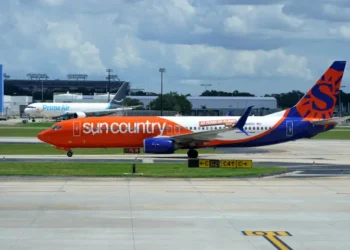Bright Simons, Vice President of policy think tank IMANI Africa, has dismissed as false recent claims that the Harbin Z-9EH helicopter which crashed this week was a donation from China to Ghana.
In a detailed clarification, Mr. Simons stated that Ghana purchased the aircraft, along with three others of the same model, from Chinese state-owned defence contractor CATIC using funds from a 2011 China Development Bank (CDB) loan agreement.
“Commander (equivalent to a Lieutenant Colonel in the army branch) of the Ghana Air Force says that the 4 Harbin Z-9EH helicopters, one of which tragically crashed last week, were DONATIONS from China to Ghana. No disrespect to the retired senior officer, but this information is INCORRECT.
“I’m only motivated to post this because the claim appears to be circulating widely in mainstream media. Ghana bought and paid for the helicopters from CATIC, a major Chinese defence contractor”
Bright Simons, Vice President of IMANI Africa
According to Mr. Simons, the procurement formed part of a $150 million “ICT surveillance” component under Tranche B of the $3 billion CDB facility. Ghana Gas was designated as the notional beneficiary, with the helicopters intended to monitor the nation’s oil and gas infrastructure – from offshore fields and pipelines to processing plants in the Western enclave.

The $3 billion facility was originally structured into two tranches covering 12 major projects. However, not all were executed due to disagreements over oil collateral requirements. Tranche B projects, including the helicopter purchase, were completed ahead of Tranche A.
While the specific unit cost of each helicopter was not officially disclosed, Mr. Simons estimated the price at roughly $11 million each after deducting the Huawei ICT component from the budget.
Abandoned Vision for Petroleum Monitoring
The helicopters were initially intended to provide live aerial surveillance, integrated into a central monitoring console for continuous oversight of Ghana’s petroleum assets. That vision, Mr. Simons noted, was “somehow aborted,” with no public explanation given.
Within the Ghana Air Force, 2 Squadron is typically assigned VVIP transport duties. However, it does not operate helicopters.
The responsibility has increasingly shifted to 3 Squadron, which manages the MI-17, Agusta/Bell, and Z-9 models. None, according to Mr. Simons, are configured to VVIP standards – a factor he believes will surface in any expert inquiry.
“This is not to say lack of VVIP configuration implies a safety limitation. But it is generally understood that such configurations often entail higher-than-usual standards”
Bright Simons, Vice President of IMANI Africa

He cited the Nigerian Air Force’s strict procurement protocols for VVIP-configured helicopters as a possible benchmark for Ghana. In drawing comparisons, Mr. Simons referenced the United States’ Marine One fleet used for presidential transport.
The current VH-92A models, delivered from 2019, include advanced safety features such as engine burst containment, lightning strike capability, bird strike tolerance, multiple redundancies in sensors, and anti-missile systems. Each helicopter costs around $90 million.
While these standards significantly exceed the FAA’s FAR part 29 benchmark, Mr. Simons acknowledged that such acquisitions are financially unrealistic for Ghana.
“It took a decade of national debate in the US to settle on a cost that balanced ideal and practicality. In Ghana, I fear we lack the culture and mental energy to drill down to such specifics”
Bright Simons, Vice President of IMANI Africa
China Is Not “Santa Claus”
Addressing the possible source of the misinformation, Mr. Simons suggested it may stem from the fact that the CDB loan was provided by the Chinese government. However, he stressed that Ghana has been repaying the facility through quarterly oil deliveries to Chinese state firm Unipec since 2015.

“That does not make it a gift. China is not Santa Claus,” he asserted. Mr. Simons indicated that extracts from parliamentary records have been made available to the media to help correct the public record.
In conclusion, Mr. Simons expressed doubt that Ghana currently has the policymaking discipline to set and enforce clear safety and configuration criteria for VVIP helicopter transport.
His intervention comes as public discourse around the August 6 crash – which claimed the lives of senior ministers, security officials, and military personnel – continues. The official cause of the incident is still under investigation.
READ MORE: Israeli Hostage Families Call For Nationwide Strike



















